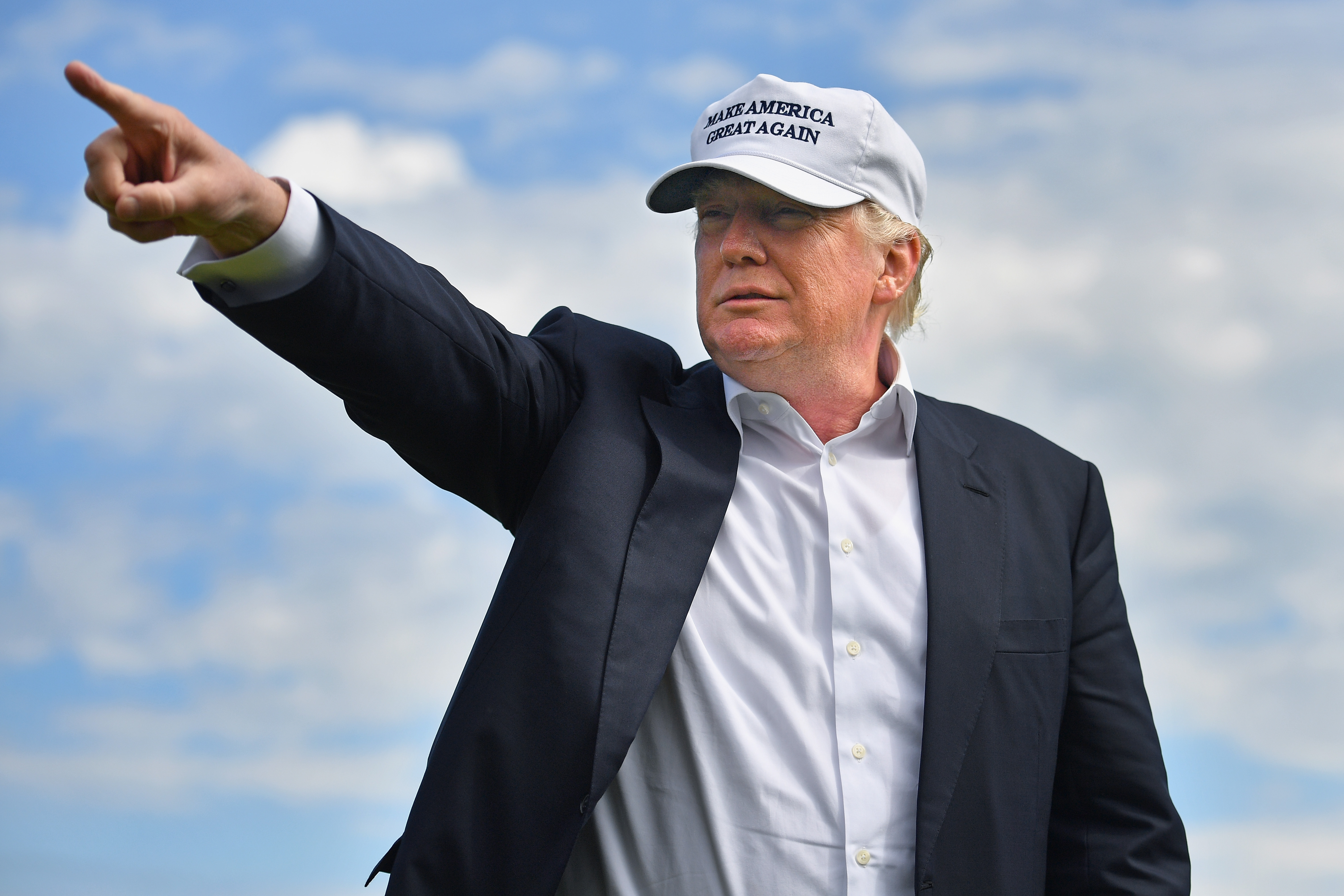Where the Trump-Brexit comparisons break down
Brexit won. That doesn't mean Donald will, too.


A free daily email with the biggest news stories of the day – and the best features from TheWeek.com
You are now subscribed
Your newsletter sign-up was successful
Americans looking to panic over Brexit have the perfect excuse: Donald Trump.
Just like those awful U.K. nationalists who voted last week to dump the European Union, Trump dislikes global agreements and would rather risk economic hardship than practice political modesty. Just like Britain's knuckle-dragging pasty-faced racists, Trump understands he can leverage outsized power through demagogic race and ethnicity baiting. To top it all off, he looks and acts like the evil twin of Leave champion and ex-London mayor Boris Johnson. We're doomed!
As inane storylines go, this one is admittedly compelling, which is why much of the media is now engaged in a panic pile-on. "They are tired of seeing stupid decisions, just like in the U.S.," Trump said of the British, stumping in Turnberry, Scotland. "There is great similarity between what happens here and my campaign. People want to take their country back." Spooked and credulous, Trump's haters now suddenly believe him.
The Week
Escape your echo chamber. Get the facts behind the news, plus analysis from multiple perspectives.

Sign up for The Week's Free Newsletters
From our morning news briefing to a weekly Good News Newsletter, get the best of The Week delivered directly to your inbox.
From our morning news briefing to a weekly Good News Newsletter, get the best of The Week delivered directly to your inbox.
But the phenomena fueling Trump and Brexit are defined more by their differences than similarities. To be sure, a small but vocal core of Trump supporters see themselves as cosmically united with nationalist whites around the world. Ironically, however, their fear that America is becoming more "European" is paired with a misbegotten longing to make America more European in an older sense — not just whiter and more nationalistic, like the U.S. was as recently as the 1980s, but anti-Semitic, anti-democratic, and anti-commercialist in a Continental way repudiated at the very inception of American civilization.
Trump's broader coalition, meanwhile, is invested in much different objectives than Brexit's. While the decisive question in the U.K. was whether to leave the EU, in the U.S. it's whether to reject Hillary Clinton. The British faced a referendum on an institution. We Americans face a referendum on a person. Further, British opposition to the EU is deeply colored by centuries-old patterns of thought and habit that are simply absent in the U.S. — especially among voters who tend to believe life has become too stagnant and safe over the past decade. At the same time, American opposition to Clinton is as potent as it is for reasons foreign to most Leave voters — to say nothing of most of the Continent's reactionary populists in places like France or the Netherlands.
The hot-button topics on both sides of the Atlantic share cursory similarities, but in reality, are virtually night and day. The scenario of a Mexican or Guatemalan immigrant securing work in a tight American job market — the anchor of Trump's immigration rhetoric — is flat-out incomparable to the scenario of a Libyan or Syrian Muslim securing a foothold for sharia or jihad in a culturally decrepit Europe — the immigration issue touted by Europe's reactionaries.
Trump is right that many Americans dislike stupid decisions and want to reclaim control from people, such as Clinton, who seek even more power despite a track record of making deeply unwise choices. But Trump himself is one of those people. For good and ill, however, his imprudent buffoonery is quintessentially American. In portraying his candidacy as part of a reactionary course correction, Trump — whose only source of success is his opponent's unpopularity — is trying to give his campaign an air of coherence and destiny. The rest of us should know better — and, whatever happens in Europe, rest easier.
A free daily email with the biggest news stories of the day – and the best features from TheWeek.com
James Poulos is a contributing editor at National Affairs and the author of The Art of Being Free, out January 17 from St. Martin's Press. He has written on freedom and the politics of the future for publications ranging from The Federalist to Foreign Policy and from Good to Vice. He fronts the band Night Years in Los Angeles, where he lives with his son.
